Ruth #5: A Sword in the Beis Midrash -- Part 2
The Perspective of the Brisker Rav and the Ben Eish Chai on the Debate on the Jewish Identity of Ruth & King David
1 hr 9 min
- June 10, 2011
- |
- 8 Sivan 5771
Rabbi YY Jacobson
2118 views- 17Comment
- Call-in
Listen to the class on the phone
Call +1 (845) 201-1933
When prompted, dial the ID number below.
230 MP3 MP4 Source Sheets - Copy Embed
Dedicated by David and Eda Schottenstein In the loving memory of Alta Shula Swerdlov And in honor of their daughter Yetta Alta Shula, "Aliyah" Schottenstein
Class Summary:
A Sword in the Beis Midrash -- Part 2- The Perspective of the Brisker Rav and the Ben Eish Chai on the Debate on the Jewish Identity of Ruth & King David. Studying the book of Ruth, Class 5
Tags
Show More
Categories
Show More
Rabbi YY Jacobson
- June 10, 2011
- |
- 8 Sivan 5771
- |
- 2118 views
Dedicated by David and Eda Schottenstein In the loving memory of Alta Shula Swerdlov And in honor of their daughter Yetta Alta Shula, "Aliyah" Schottenstein
Classes in this Series
Please help us continue our work
Sign up to receive latest content by Rabbi YY
Join our WhatsApp Community
Join our WhatsApp Community


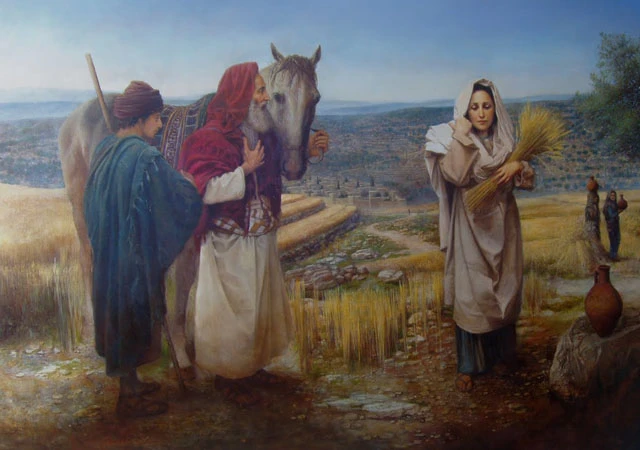
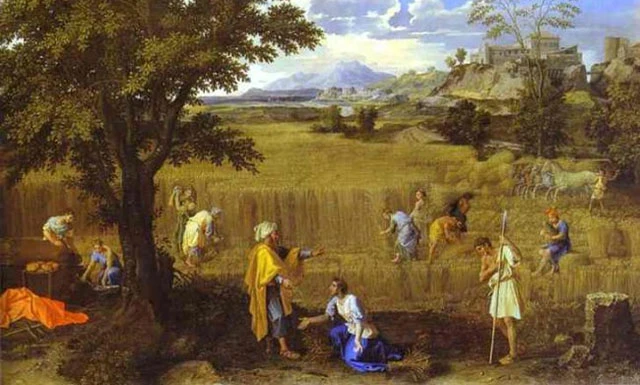
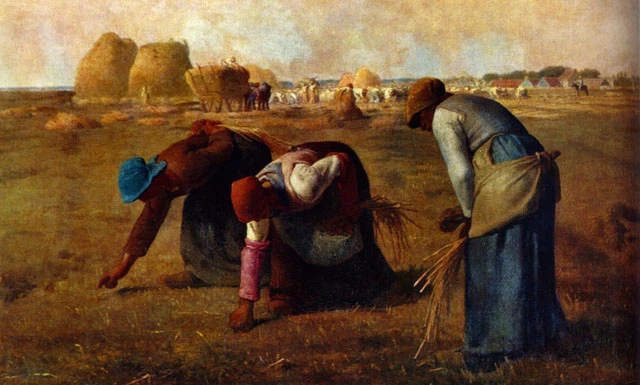
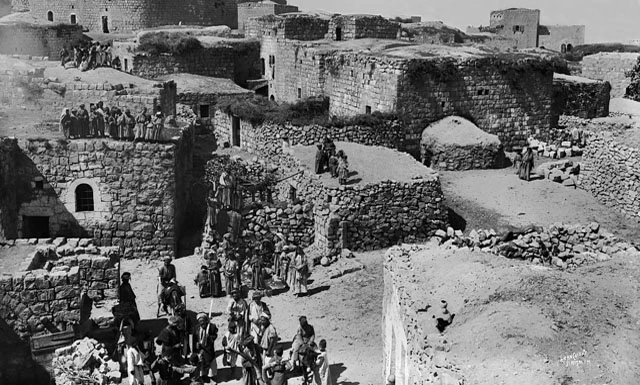

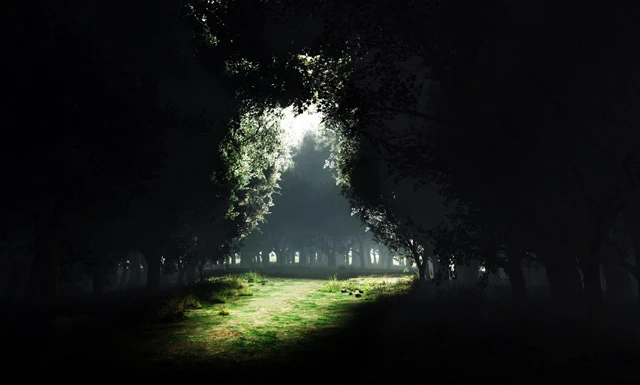
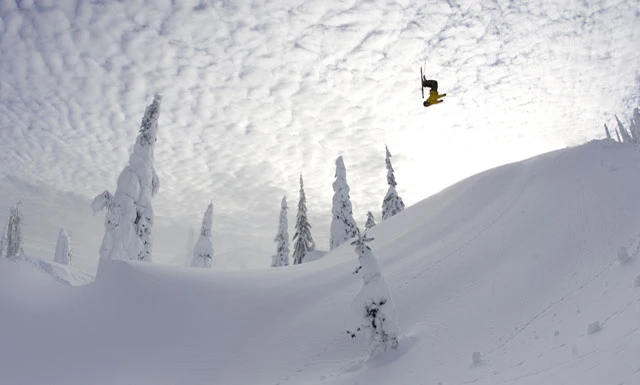

Please leave your comment below!
YY Jacobson -1 year ago
Great question.
I do not think it was an obligation in a regular sense of obligation -- since yibum is only with a brother in law anyhow.
it was the idea of yibum in a broader sense -- continuing the life of the person who passed via a relative.
Reply to this comment.Flag this comment.
YY Jacobson -1 year ago
Possibly not recorded yet.
Reply to this comment.Flag this comment.
Anonymous -1 year ago
בבקשה שילחו לי גם מתורגם לעברית . תודה
בבקשה שילחו לי את כל הפרקים על רות בעברית , כדי שבנותיי תוכלנה ללמוד ולהבין לעומק !!תודות ל הרב יעקובזון
Reply to this comment.Flag this comment.
YY Jacobson -1 year ago
סליחה. זה רק באנגלית
Reply to this comment.Flag this comment.
Anonymous -2 years ago
Sorry ...I want ruth#9 video...
Reply to this comment.Flag this comment.
Anonymous -2 years ago
Is there other video on ruth last chapter(ruth#6). If s plz share. Tq . Shalom
Reply to this comment.Flag this comment.
danny -8 years ago
can we put the video?
Reply to this comment.Flag this comment.
Daniel Ganjian- Los Angeles -11 years ago
Question
Great shiurs. If ruth converted after her husband past away, then she should not have been related to naomi anymore (since a convert is no longer related to even her parents). Why was boaz obligated to do yibum with her, since he is no longer related to him now that she converted?
Reply to this comment.Flag this comment.
Sarah -12 years ago
Reasoning behind the halocho
Can you explain the deeper reason behind the halocho of עמוני ולא עמונית מואבי ולא מואבית?
If it is because Moabites and Amonites apparently have intrinsically cruel middos, and we don't want them to join Klal Yisroel because the Jewish nation has the quality of mercy - then both men and women should be excluded. The men who didn't go out with food and water to the Jews no doubt inherited these qualities from their parents, including their mothers, (and will no doubt pass them on to their daughters)!
that is, if the people of these nations are cruel, then all of them should be excluded.
The only other explanation left, then, would be that we are "getting back at them" - ie taking revenge on the men - saying, well, since you didn't come forward with bread and water to the Jews, well to strike you back, we won't let you join our nation.
This seems petty and very un Jewish. We are encouraged not to take revenge or get back at someone for a misdeed.
So I am at loss to try and understand the deeper reason behind this halocho. Maybe you could help shed some light on it?
Reply to this comment.Flag this comment.
Anonymous -13 years ago
Eli Melech's sons
How could Eli Melech's and Naomi's sons "marry" or have relations with Moabite women? Wasn't Zimri killed by Pinchas for having relations with a Moabite woman? If you say that those two women converted first, before having relations with Naomi's sons, then the question of are Jewish men able to marry a moabite woman wherein the children of that marriage are able to marry Jewish men, must have already been known that that was ok. and their children would be considered part of the Jewish people.
So how was Orpah and Ruth considered sisters-in-law if their marriage to Ruth's children was not legal?
Inother words, why were Naomi's children allowed to marry Moabite women?
Reply to this comment.Flag this comment.
Anonymous -13 years ago
Re: Eli Melech's sons
A correction: Zimri had relations with a Midyanite woman, not a Moabite woman.
As far as your question: We discussed this in the "comments" section of class 4. Here is the point: Some commentators argue that the two women, Ruth and Arpah, converted. Yet the literal reading of Ruth ch. 1 indicates that they did not convert (see Malbim to Ruth chapter 1), rather they "married Moavite women." This demonstrates the spiritual and moral downfall of the family, of Elimelech and his two sons. It may be that Naomi could do little to stop it.
You must also recall that they married these women after their father Elimelech died.
The Midrash Rabah on Ruth 1:9 states these enigmatic words:
וַיִּשְׂאוּ לָהֶם נָשִׁים מוֹאֲבִיּוֹת: תני בשם ר' מאיר, לא גיירום ולא הטבילו אותם ולא היתה הלכה להתחדש, ולא היו נענשין עליהם, "עמוני" ולא עמונית, "מואבי" ולא מואבית
Meaning: They did not convert them; they did not immerse them in a mikvah [for conversion]. They did not yet have the law that Moabite women may marry into the Jewish people, so that they would not get punished over them.
The commentators of the midrash debate its meaning. It is an engimatic midrash. Some say it means that they did convert them because they thought that in any case they would be forbidden to marry them.
According to the Zohar (Zohat Chadash Rus), they did convert, but it was unclear if the conversion was sincere. When Arpah left, it proved retroactively that her conversion was insincere. Ruth, on the other hand, demonstrated that her conversion was authentic.
Reply to this comment.Flag this comment.
Lazer -13 years ago
Hlacha Lmoshe Misinai
Your comment on why the Brisker Rov does not bring the Ramabam is a good one. Although see Teshuvot Chvat Yair Siman 192(54), he explains the position of the Rambam regarding HL"M. See as well the Briske Rov's book on Chumash page 116, he explains the Ramabm as well.
Do you where I can find a PDF of the B"R book on Ruth, I can't seem to find it anywhere. Thanks, great class as usual.
Reply to this comment.Flag this comment.
Anonymous -13 years ago
Re: Hlacha Lmoshe Misinai
The Brisker Rav does bring the Semag, but not the Rambam. In the sefer Beis Halevi on Torah, in the back of it, they inserted some of the commentary of Reb Velvele Brisker on Tanach. In the section of Ruth you will find this commentary.
Reply to this comment.Flag this comment.
Lazer -13 years ago
Re: Hlacha Lmoshe Misinai
If you take a look the the Semag, it seems to be more explicit there, he explains that the words "Mekublani Mibeis Dino Sehl Shmuel" means Halacha Lemoseh Misinai.
As opposed to the Ramab"m who only mentions that it happened to be a HL"M. As well the Ramba"m in his Pirush Hamishnayos explains that a HL"M is not something which people could forget. Hence this cannot be the case here for the Gemara states that this Halacah was clearly forgotten.
On a side note in the curriculum it states: חידושי הגרי"ז" להגאון רבי יצחק זאב הלוי סולוביציק, הרב מבריסק למגילת רות
As far as I am concerned no such Sefer exists.
Thanks for time and effort.
Reply to this comment.Flag this comment.
Anonymous -13 years ago
Re: Hlacha Lmoshe Misinai
The Rambam clearly states that this is halacha lemoshe mesenai. The Gemarah says no where that this halacha was forgotten, only that Saul told Avner that he did not know the halacha. Regardless, we have a clear source in Rambam that this is a halacha lemoshe mesenai. Obviously, that is how the Rambam understood the words in Gemarah (Yavamos 76b) "mekublani mebeis dino shel Shmuel..."
Where is it stated in the Semag?
Reply to this comment.Flag this comment.
Lazer -13 years ago
Re: Hlacha Lmoshe Misinai
Commentaries question the Rmabam's position of H"LM for the Gemara only states that this halach was gotten from Shmuel. See the the above mentioned Chavot Yair.
The first one (to my knowledge) that explains the Gemara that what they recieved from shmuel was a HL"M is the Sema"g see here: http://hebrewbooks.org/pdfp...
Reply to this comment.Flag this comment.
Anonymous -13 years ago
Re: Hlacha Lmoshe Misinai
Name of the title page is:
חידושי מרן הגרי"ז הלוי על תנ"ך ואגדה
Reply to this comment.Flag this comment.
aba -13 years ago
amzallag
why is ki tov ofering ruth to boaz if then boazs children also will be mamezierim
Reply to this comment.Flag this comment.
Anonymous -13 years ago
Question
First of all, not mamazarim, just forbidden to marry regular Jewish women or men. Second, his name was Tov, not Ki Tov. Third, Boaz can take that risk. Halachikly it is not a problem, but Tov did not want to take that risk. In addition, Boaz had no children, for all of them died in his life time (Bava Basra 91a), so Tov may have thought that Boaz will not leave any children.
Reply to this comment.Flag this comment.
Robert Rubin -13 years ago
Dovid Ben Gurion
My second question does not make sense after I listened to the story again in the video. I was looking at Rambam - Perek 12 - Halacha 18 (number 5 in the curriculum)which has nothing to do with this story. It is number 6 in the curriculum on ba'Ohel that Ben Gurion was missing which would invalidate Dovid Hamelech's status since the women would have been required to have come out with the men to greet the jewish people as they came to Moab. Please correct me if I am still missing it. Again thank you for the thought provoking story. I am looking forward to chapter 6.
Reply to this comment.Flag this comment.
Sam C. -13 years ago
Harsh
(Perhaps when the gemorah in sotah relates that in the merit of rightious women that were in egypt we were redeemed and will be redeemed, Nashim Tzadkonyiot can mean a lady who will be rightious, ger tzedek, rightious convert meaning Ruth???!!!)
Is this again part of the birthpangs of future and retroactive suffering that Dovid Hamelech and his entire dynasty and identity starting from Ruth being under scrutiny and possibly refuted or falsfied, one of the harsh and excruciating conditions that must be met for him to merit the royal lineage that will haerald the redmeption?
I mean the very fact that Davids lineage is continually discussed and debated even as a story for future generations about its Jewish identity, isnt that painful?
Reply to this comment.Flag this comment.
Anonymous -13 years ago
Re: Harsh
Great questions. This is the exact topic of next week's class, class 6 on Ruth. I did not get to it in this class, but will cover it in next class. Please stay tuned.
Reply to this comment.Flag this comment.
Kayo from Japan -13 years ago
I call this Gevaldic
B"H
I reacently met a Jewish woman who only keeps what seems to her ethical to keep(I know, all the Torah Laws are ethical). I wanted to explain about Oral tradision but I did not know how. I will tell her to watch this shiur. The principals of Oral Tradition became so clear to me thanks to this shiur. The truth about Moshia ben Yosef and ben David are facinating. And of course, the wisdom of the Rosh Yashivah about deployment of Jewish women was just marvelous.
Reply to this comment.Flag this comment.
Anonymous -13 years ago
Re: B"H
No, they were not related.
Reply to this comment.Flag this comment.
Robert Rubin -13 years ago
Halacha 18
Thank you for a terrific class. What I am confused on is how did the halacha start out as subject to the exegesis of the reigning beis din but then become derived from Moshe Rabeinu as the Oral tradition. Were previous beis din's wrong all along? As to the story of David Ben Gurion you mentioned at the end, if halacha 18 is the law why would his actions in trying to draft women invalidate the halacha afterall?
Reply to this comment.Flag this comment.
Anonymous -13 years ago
Re: Halacha 18
As far as your first question: The Brisker Rav explains that Boaz, Avner, and all the others deduced based on the principles known as the “13 midos” that a Moabite woman may marry into the Jewish people. Yet Shmuel and his beis din had the tradition of Moshe from Sinai, which was apparently not known to Boaz and the others.
By the way, in “chedushei Hagrez” by the Brisker Rav to Ruth it says that Amasa was the one who said this in the beis midrash. Yet it seems it is an error. It was Amasa’s father, Yisra, who said it.
I did not understand your second question, please explain. And what is "halacha 18?"
Reply to this comment.Flag this comment.
Rochelle -13 years ago
class 5
Amazing class, as usual. I particularly liked that you displayed photos of the pious commentaries.
Also, "yishee ba'ohel" can be applied literally, vhamaskil yavin, descendant of Dovid Hamelech.
Reply to this comment.Flag this comment.